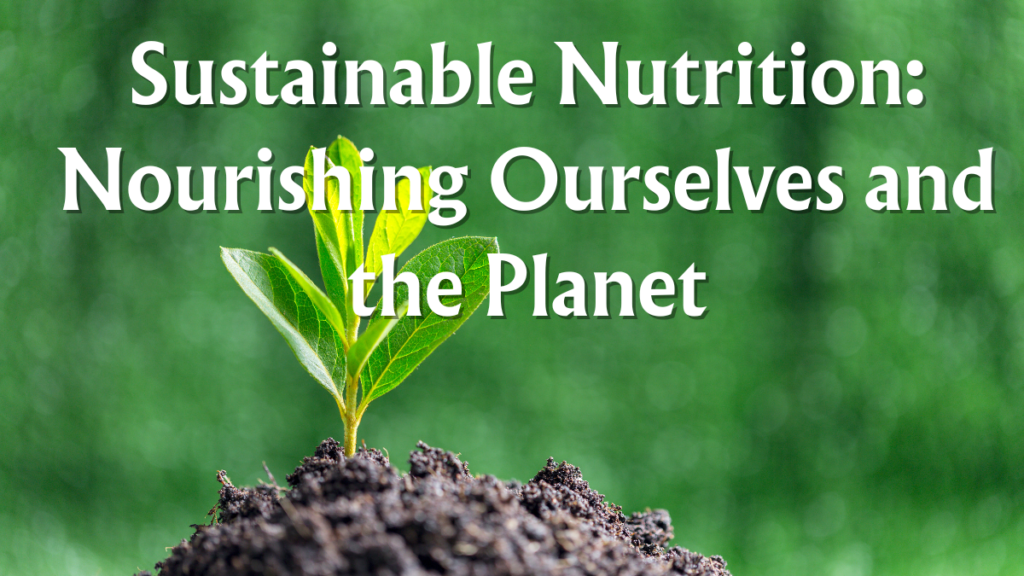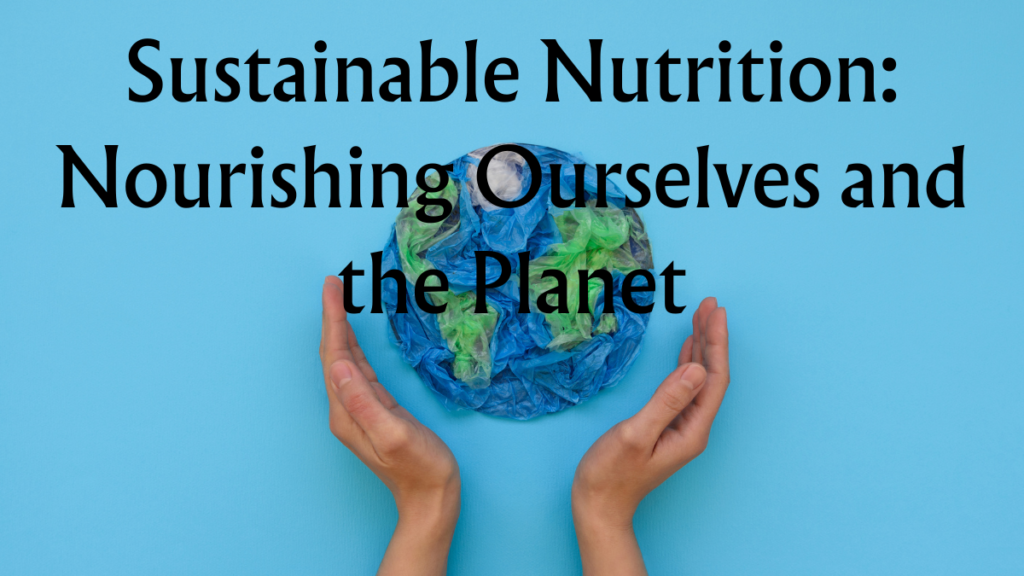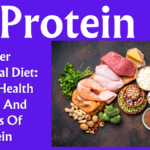Sustainable Nutrition: Nourishing Ourselves and the Planet
Considering the Environmental Impact of Dietary Choices
Our dietary choices extend beyond personal well-being; they play a crucial role in shaping the health of our planet. Embracing sustainable nutrition involves making mindful decisions that not only support our health but also contribute positively to the environment. Here’s a closer look at the environmental impact of dietary choices:

1. Plant-Based Embrace
– Incorporate more plant-based foods into your diet. Plant-based diets generally have a lower environmental footprint compared to diets high in animal products.
2. Local and Seasonal
– Opt for local and seasonal produce. Supporting local farmers reduces the carbon footprint associated with transportation and encourages seasonal eating.
3. Mindful Meat Consumption
– If you consume meat, choose sustainably sourced and ethically raised options. Reducing meat intake, especially from industrially farmed animals, contributes to environmental conservation.
4. Reduce Food Waste
– Minimize food waste by planning meals, storing food properly, and repurposing leftovers. Wasted food contributes to methane emissions in landfills.
5. Conscious Packaging Choices
– Be mindful of packaging. Choose products with minimal and eco-friendly packaging to reduce waste.

Tips for Adopting a Sustainable and Well-Balanced Diet
Embracing a sustainable diet doesn’t mean sacrificing nutritional needs. It involves making thoughtful choices that prioritize both personal health and the health of the planet. Here are practical tips for adopting a sustainable and well-balanced diet:
1. Diverse and Colorful Plate
– Create a diverse and colorful plate by incorporating a variety of fruits, vegetables, whole grains, and legumes. This not only enhances nutrition but also supports biodiversity.
2. Choose Whole and Unprocessed Foods
– Opt for whole, unprocessed foods that are closer to their natural state. These foods generally require fewer resources in production and are healthier for both you and the environment.
3. Mindful Seafood Selection
– If you consume seafood, choose sustainably sourced options. Look for certifications like MSC (Marine Stewardship Council) or Seafood Watch recommendations.
4. DIY Plant-Based Alternatives
– Explore homemade plant-based alternatives to common animal products. Making items like plant-based milk or burgers at home can reduce reliance on processed, packaged alternatives.
5. Educate Yourself
– Stay informed about sustainable food practices. Understand the environmental impact of various foods and make informed choices that align with your values.
Conclusion: A Holistic Approach to Well-Being
Sustainable nutrition goes beyond personal health; it’s a holistic approach that considers the interconnectedness of our well-being with the health of the planet. By making mindful choices, embracing plant-based options, and reducing waste, we can contribute to a more sustainable and well-balanced world—one nourishing meal at a time.
https://en.wikisource.org/wiki/History_of_botany_(1530%E2%80%931860)/Book_3/Chapter_2
https://optimalhealth24.com/unlocking-optimal-health-understand-nutrition/






